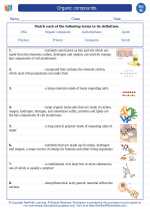Electrical Engineering
Electrical engineering is a branch of engineering that deals with the study and application of electricity, electronics, and electromagnetism. It involves the design, development, and maintenance of electrical systems and components to power and control various devices and systems.
Key Concepts in Electrical Engineering
- Circuit Analysis: Understanding and analyzing electrical circuits, including Ohm's Law, Kirchhoff's Laws, and circuit theorems.
- Electronics: Study of electronic components, such as diodes, transistors, and integrated circuits, and their applications in circuits and systems.
- Electric Power Systems: Design and operation of systems for generating, transmitting, and distributing electrical power.
- Control Systems: Application of control theory to design systems that regulate and control processes using feedback.
- Signal Processing: Analysis and manipulation of signals, such as audio, video, and data signals, using various techniques and algorithms.
Skills and Tools
Electrical engineers need to possess a strong foundation in mathematics, physics, and computer science. They also utilize various tools and software for circuit simulation, programming, and design, such as MATLAB, SPICE, and CAD tools.
Career Opportunities
Electrical engineering offers diverse career opportunities in industries such as telecommunications, power generation and distribution, consumer electronics, automotive, aerospace, and renewable energy. Graduates can pursue careers as electrical engineers, control systems engineers, power systems engineers, electronics design engineers, and more.
Study Tips
- Strong Foundation: Ensure a solid understanding of fundamental concepts in mathematics, physics, and electronics.
- Hands-on Projects: Engage in practical projects and experiments to apply theoretical knowledge to real-world problems.
- Stay Updated: Keep up with the latest developments and trends in electrical engineering through journals, professional organizations, and industry news.
- Collaborate and Network: Join study groups, engage with professors, and network with professionals to gain insights and opportunities in the field.
With a strong foundation in electrical engineering principles and practical skills, students can embark on a rewarding and impactful career in this dynamic field.
.◂Science Worksheets and Study Guides Eighth Grade. Organic compounds
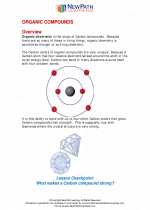
 Worksheet/Answer key
Worksheet/Answer key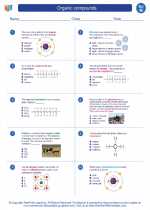
 Worksheet/Answer key
Worksheet/Answer key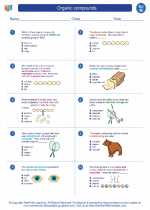
 Worksheet/Answer key
Worksheet/Answer key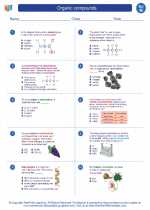
 Vocabulary/Answer key
Vocabulary/Answer key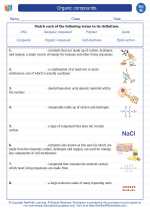
 Vocabulary/Answer key
Vocabulary/Answer key